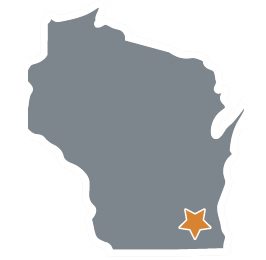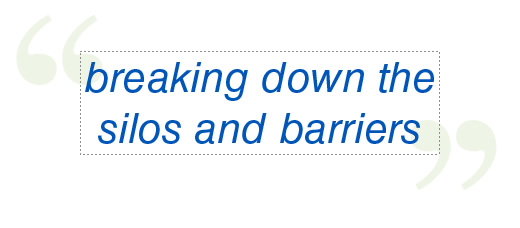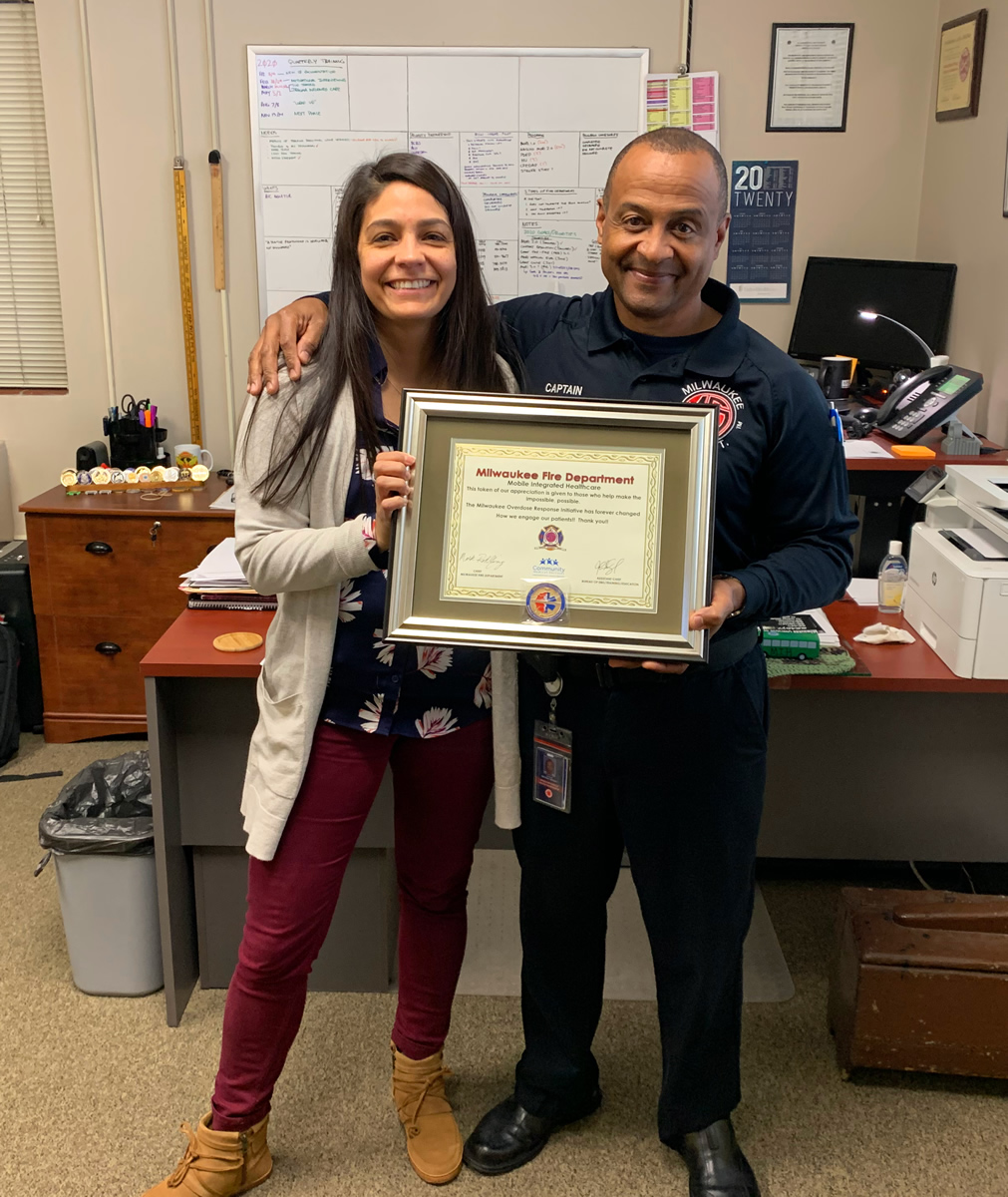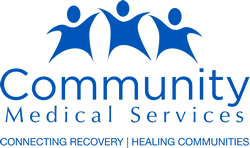Community Partnership is Key to Solving the Opioid Epidemic

Joining forces with the community is proving to be a successful model for addressing the opioid crisis in many communities, and one that Community Medical Services wholeheartedly embraces.
CMS was recently highlighted in an article in the Wisconsin Examiner for its innovative approach to connecting with the Milwaukee community and expanding outreach beyond the doors of its treatment clinics.
Since outreach services began in West Allis, overdose statistics have fallen and remain at all-time lows. CMS clinics provide a variety of services to people struggling with opioid use, including medication-assisted treatments (MAT) like methadone and buprenorphine, as well as behavioral health services including counseling and case management.

Amanda Rodriguez, Community Programs and Integration Manager in Milwaukee, points to the partnerships CMS has forged with the city, and particularly with the fire department — as well as other community partners such as Street Angels and UMOS, a non-profit advocacy organization — as factors in the clinic’s success.
The West Allis clinic also participates in the Milwaukee Overdose Response Initiative (MORI), where a peer support specialist from CMS accompanies a community fire fighter paramedic to assist overdose victims with medications, treatment options, and other resources to encourage them to get the help they need to overcome their addiction.
Building these kinds of networks helps in “breaking down the silos and barriers for our patients and gives them access to resources they need,” says Rodriguez. And it’s working.
Improvements are evident in the West Allis Fire Department’s own data collection. “In the past two years, CMS’s administration and staff have demonstrated themselves to be good stewards of the community’s trust, providing outstanding service to patients in a timely, compassionate, and comprehensive manner,” states Assistant Chief Joshua Parish in a letter to the City of Milwaukee.
“These services undoubtedly save lives and reduce the fatal impact of substance use.”

Rodriguez says she is rewarded by the faces of former clients who found hope through treatment. “It’s because of this community approach,” she says, “that we’re all on the same page, we all acknowledge that there’s this opioid epidemic going on right now, and we’re trying to figure out a better way to help solve this problem.”
But a single facility can only do so much. The West Allis clinic has experienced exponential growth, growth that would be best supported by an additional clinic in the area. Attempts by CMS to open a second clinic in Milwaukee have been met with resistance by residents concerned and confused about the clinic’s purpose.
John Koch, Community Engagement Director for CMS, believes that the “Not In My Back Yard”, or NIMBY stigma, is hindering CMS from making additional headway in the fight against the opioid epidemic. “We need relief for our West Allis clinic,” says Koch. “So we’ll continue to work with the community to address these concerns by residents and point to the success we are seeing in helping the communities fight this real, and growing, problem.

Manager at CMS accepts an award from Michael Wright,
Deputy Fire Chief West Allis Fire Department

